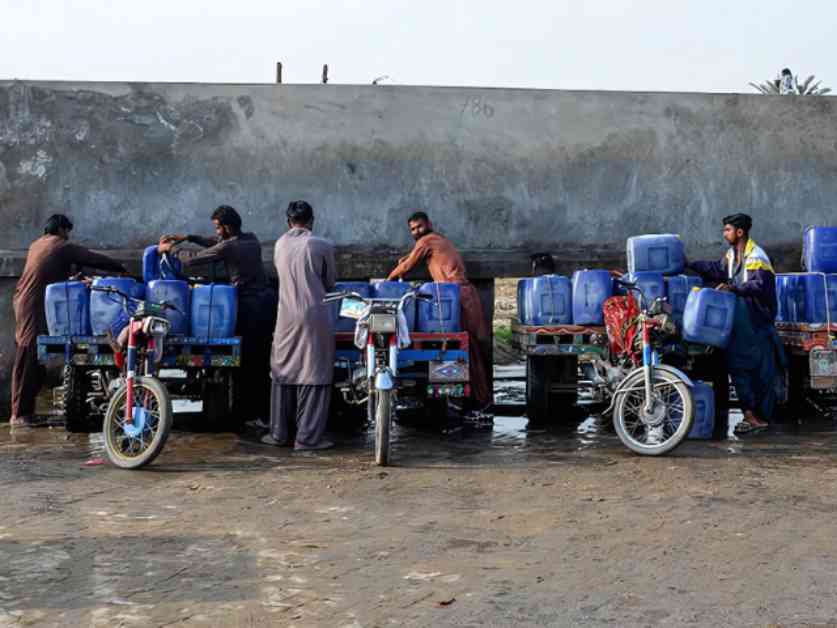In the scorching city of Jacobabad, Pakistan, a looming crisis threatens the region’s essential water supply. With temperatures soaring above 50 degrees Celsius during intense heatwaves, the community faces critical health risks like dehydration and heatstroke. At the heart of this challenge lies Jacobabad’s municipal water system, sustained by a $66 million USAID grant in 2012, which delivers clean water to around 350,000 residents.
Threat to Water Scheme
The USAID grant has been a lifeline for Jacobabad, pumping 1.5 million gallons of purified water daily from a canal located 22 kilometers away to combat severe water scarcity. However, the recent freeze on US foreign aid, including $1.5 million earmarked for the water system’s maintenance, has cast a shadow over this vital infrastructure. The future of the project now hangs in the balance, leaving the community at risk.
HANDS, the Pakistani non-profit overseeing the project, has sounded the alarm, cautioning that without critical funding, the water system could collapse within months. “Since everything is just suspended, we have to withdraw our staff, and the project will likely cease functioning,” shared HANDS CEO Shaikh Tanveer Ahmed. The burden has shifted to the local government, ill-equipped to manage the intricate system, raising concerns about a potential shutdown.
Jacobabad’s vulnerability to climate change exacerbates the situation. Weather reports indicate a 52% decrease in rainfall in Sindh province, signaling a looming moderate drought. For residents like Tufail Ahmed, access to clean water isn’t just a convenience—it’s a matter of survival. “If the water supply is cut off, survival will be challenging,” Ahmed emphasized. Water, the essence of life, is now under threat in Jacobabad.
Impact of Climate Change
The freeze on US aid arrives at a time when Jacobabad, much like the rest of Pakistan, grapples with the mounting impacts of climate change. Despite contributing minimally to global greenhouse gas emissions, Pakistan finds itself disproportionately affected by rising temperatures and extreme weather events. Heatwaves, growing in frequency and intensity, underscore the critical importance of water supply systems funded by international aid.
Prior to the municipal system, residents relied on costly private water tankers, often contaminated with harmful substances. Noor Ahmed, an 18-year-old student, vividly recalls the days when women had to trek for hours to fetch water. The municipal system brought about a welcome change, offering a reliable water supply at an affordable rate.
However, as the specter of a water supply halt looms, local activist Abdul Ghani warns of dire consequences. “If the supply is cut off, it will severely affect the public. We cannot afford alternatives,” Ghani stressed. The potential loss of this critical resource underscores the fragile nature of global partnerships in climate adaptation efforts.
The crisis in Jacobabad highlights the broader reverberations of US foreign policy decisions on global climate initiatives. The aid freeze illuminates the vulnerability of countries like Pakistan on the frontlines of climate change. Without sustained support, communities like Jacobabad face the harsh reality of climate impacts without the necessary resources to endure.
As 55-year-old resident Sadruddin Lashari aptly puts it, “This water supply cannot be stopped. Without it, we will struggle to survive the heat.” The urgency for continued international backing in the face of climate challenges is unmistakable. Jacobabad stands as a poignant reminder that global cooperation and foreign aid are indispensable in fortifying vulnerable communities against the harsh realities of climate change.









